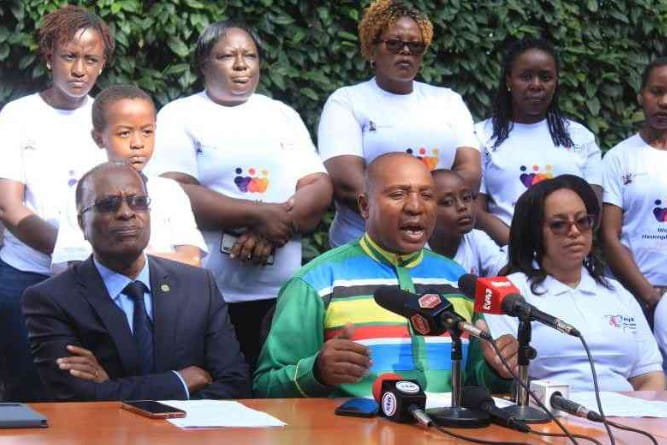The Kenya Haemophilia Association (KHA) has appealed to the government, specifically the Ministry of Health, to increase financial support for the nationwide provision of clotting factor concentrates.
The association further emphasised that part of the funding should be directed toward enhancing and expanding the implementation of haemophilia treatment protocols.
Haemophilia is an uncommon blood disorder that impairs the body’s ability to form clots properly, causing individuals to bleed more easily and for longer durations than normal.
KHA emphasised that sufficient government funding is crucial to safeguarding the lives of over 1,000 individuals currently at risk due to the blood disorder.
Speaking in Nairobi on Thursday during the marking of World Haemophilia Day, the association's Chair, Karanja Njoroge, revealed that 25 people have died from the condition over the past four years.
He noted that these deaths were preventable and stressed that, despite medical advancements, living with haemophilia in Kenya still poses significant daily challenges.
Njoroge pointed out that the struggle goes beyond the medical condition itself, as patients also face systemic neglect and social stigma.
"Haemophilia is a rare but manageable bleeding disorder that only turns deadly when proper care is withheld. Unfortunately, in Kenya, patients continue to suffer and die quietly, not just from the disease, but also from being isolated and marginalised," he said.
He shed light on the numerous obstacles facing haemophilia care and the patients who depend on it.
Currently, Haemophilia is not included in the Social Health Insurance Fund (SHIF), and the government neither procures nor finances the necessary treatment products.
Although clotting factor concentrates are registered with the Pharmacy and Poisons Board, they remain largely unavailable in private hospitals due to their high cost.
Limited awareness around haemophilia diagnosis and treatment further compounds the issue, and most public health facilities lack the capacity to manage the condition effectively.
David Ole Sankok, a member of the East African Legislative Assembly (EALA) and a vocal advocate for disability rights, voiced his frustration over the stalled implementation of a petition he presented to Parliament back in 2019.
"Parliament approved the petition, and with input from the Kenya Haemophilia Association, a Ministry of Health-led task force proposed a supplementary budget of Sh500 million," Sankok said.
"Though the funds were approved, they were never released. The pandemic came and went, but haemophilia patients are still left waiting, some, tragically."
Sankok also urged the Ministry of Health to address the gender disparity in Haemophilia care by prioritising early screening and accurate diagnosis for women with bleeding disorders.
He noted that many women are either misdiagnosed or overlooked, leaving them without the care they need.
"Too many women with bleeding disorders suffer undiagnosed, especially during childbirth. KHA calls for Haemophilia care to be fully integrated into maternal and reproductive health services. No mother should die giving life," said Sankok.
